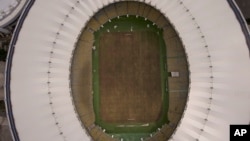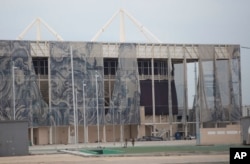The cost of last year's Rio Olympics has risen to 43.3 billion reais ($13.2 billion), around 14.5 billion reais more than originally planned, according to figures published by the federal agency for Olympic legacy (AGLO) on Wednesday.
The original budget when Brazil won the right to host the Games in 2009 was around 28.8 billion reais.
The total announced on Wednesday could still rise further, but it was in keeping with expectations that had been revised during the countdown to South America's first Olympics.
The cost is below the 8.92 billion pounds ($14.3 billion) spent on London 2012, but still more than twice the $5.2 billion average cost of hosting the Summer Games, according to a 2015 study by the University of Oxford and Said Business School.
Some 7.23 billion reais was spent on venues, AGLO said.
The Globo sports website reported that the cost of infrastructure projects rose to 26.7 billion reais and another 9.2 billion reais was spent on operating costs.
Rio de Janeiro, which hosted the Olympics in August and the Paralympics in September, has been criticized for a lack of legacy planning, with some of the venues abandoned soon after the closing ceremony.
Other infrastructure projects, including a new metro line that does not extend all the way to the main Olympic Park, have had their effectiveness questioned.
Officials said that legacy planning was a major challenge but that they intended to hold an average of three events a month at the Olympic venues starting this June, a number they hope will increase to 10 events a month by December.
“It's not easy to manage the legacy,” AGLO president Paulo Marcio Dias Mello told reporters. “London, for example, took two years to deliver the legacy and even today there is public investment in that legacy.”
“Even if it doesn't meet everyone's expectations, it will be a relief that what we have here will not be white elephants.”







